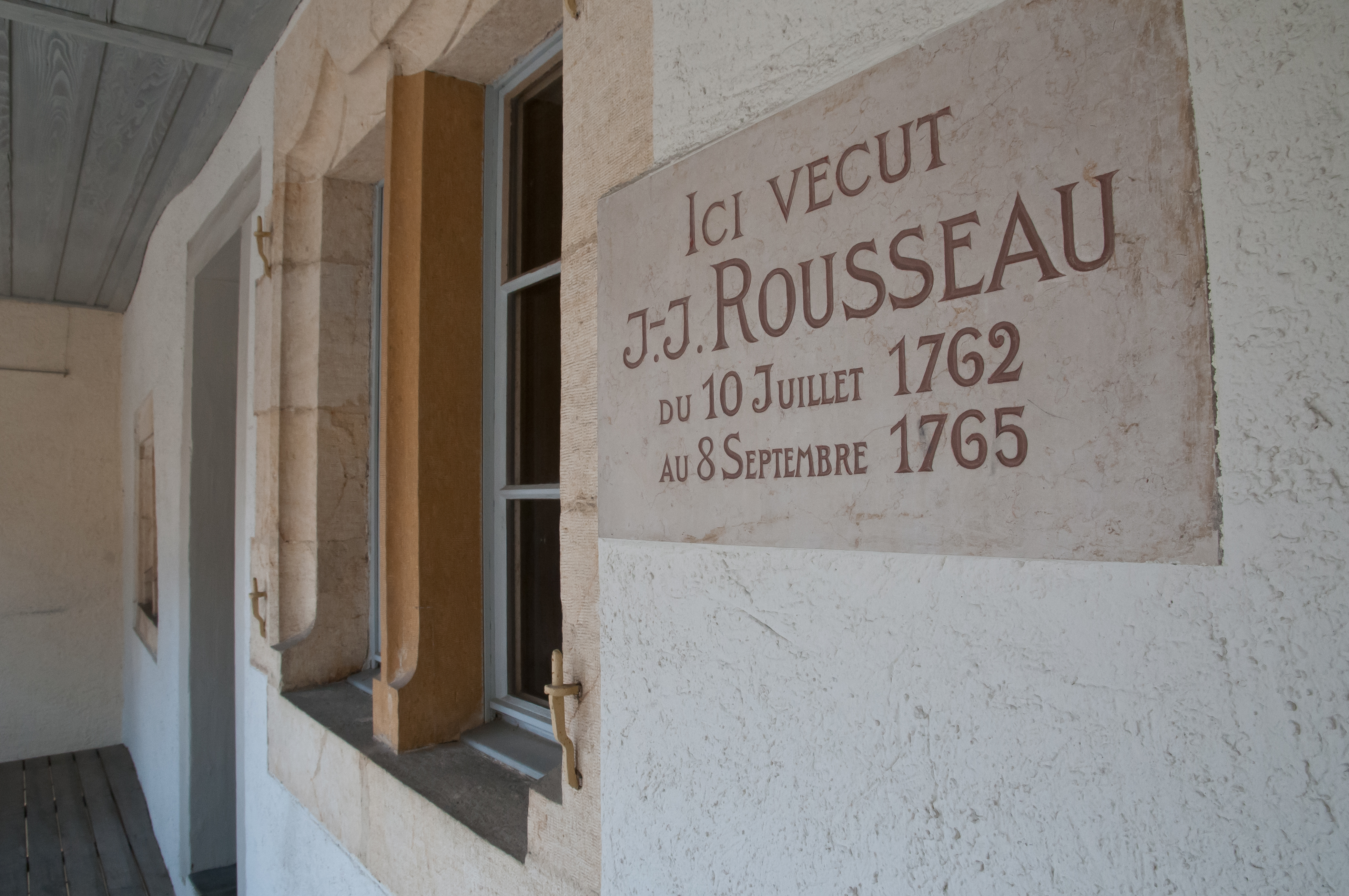A writer with global appeal

Three hundred years after his birth in Geneva, the philosopher and writer Jean-Jacques Rousseau still has a worldwide cult following and his work continues to be translated into other languages.
France, Italy, England, Russia, the United States, Brazil, Benin, China, Japan… No, it’s not a football tournament draw. These are just some of the countries that are paying homage to Rousseau in this 300th anniversary year.
It’s no wonder then, at Switzerland’s initiative, his works were added last year to Unesco’s Memory of the World register of important works to be preserved.
“Rousseau is one of the best known western authors in Japan, where nearly all his works have been translated since the late 19th century,” said Takuya Kobayashi, who did a doctorate on Rousseau. “If you count PhD students and young researchers, at least 50 Japanese are currently working on the Geneva writer, four of whom are working on new works.”
“We are also interested in the almost Buddhist-like trait of identifying with nature and the universe that is found in Reveries of a Solitary Walker.”
Not forgetting that one of the leading experts on Rousseau’s music, Yoshihiro Naito, is also Japanese.
“Founder of modern thought”
“Every year there are as many books published about Rousseau as Shakespeare and even more than his big rival Voltaire,” Frédéric Eigeldinger, former professor at Neuchâtel University, told swissinfo.ch.
“Students are captivated by the autobiographical aspect of The Confessions and by the Discourse on the Origin of Inequality, which is still totally relevant today. He is the founder of modern thought but also, with The New Heloise, had the first bestseller in history.”
Geneva University professor Martin Rueff agrees. “There are few writers who are as accurate in their descriptions, as deep in their construction and as refined. His writing skills stimulate students.”
There are two basic reasons to keep reading Rousseau in this day, Rueffs adds: “There is the quality of his descriptions, because he knew how to detect in the society in which he moved certain divisions that his contemporaries did not pick up on and he was even able to foresee which divisions we would later have.”
“Then there is the extraordinary quality of his theoretical constructs, with assumptions that are still relevant today.”
Universal appeal
Self-taught, Rousseau touched on a variety of subjects and had flashes of inspiration in all fields: philosophy, education, poetry, botany, music. His reflections on the nature of power and systems of government endure. As precursors of the French revolution, his ideas brought him persecution and exile. Emile and Social Contract were burned in the streets of Geneva and are still the subject of debate today.
His literature on the other hand has almost universal appeal. His writings have a very fresh descriptive style. His prose is full of visual and auditory sensations that provided the language necessary for the development of poetry in the century that followed – so much so that he was considered the father of the romanticism emerging in Europe.
Nowadays, Rousseau can be more difficult for young people to grasp. But Marie-France Puro, a professor at Geneva College, includes his work as part of her coursework each year.
“My students tend have bad preconceptions about Rousseau as he seems very far removed from their own lives. So I have to prepare the way and show them that the author of the Confessions is portraying a young man of their age. An old man looks back tenderly and laughingly at the carefree young man he was,” she said.
“Many students eventually get into this work.” But, she added, “they are very annoyed by his blinkered attitude to women and by the slightly egocentric, manic side of the writer, which escapes them.”
Despite being “annoyed by Rousseau’s ambivalence towards women”, Puro is at the same time “touched by his humanity, his courage to speak about his issues with intimacy”.
“Lies”
For Eigeldinger, Rousseau’s “egocentricity” is his greatest originality, because it led him to “invent the introspection and confession” style that would be emulated in autobiographical literature both in France (Chateaubriand, George Sand) and Switzerland (Henri-Frédéric Amiel). A literary genre that, with the arrival of psychoanalysis, would pave the way for an endless field of research.
There is one point on which literary experts are divided: Rousseau’s sincerity. Some accuse him of “lies”, particularly about his five children abandoned to state care.
Rueff is interested in his sincerity from a rather more theoretical angle (what it meant to talk about his life) than factual angle (what he lied about). “I think that Rousseau is sincere but, like all of us, he is caught up in the contradictions of life. Basically he is not someone who lies to himself and that is invaluable.”
Regardless, Rousseau remains widely read. His books still sell in book shops and there are countless blogs and platforms dedicated to him on the Internet.
Geneva University’s website Athena, one of the first to have put the major works of Rousseau online (among others) was created in 1994. Designer Pierre Perroud told swissinfo.ch that it took two years just to complete the online version of Confessions.
“The site has a million hits a month. The Discourse on Inequality has been read in the thousands, millions,” he said, adding that today the range of works on offer is considerably larger.
June 28, 1712: Rousseau is born in Geneva. His father and grandfather are watchmakers. His mother dies in childbirth and his father puts him in boarding school for ten years. At the age of 16, he leaves Geneva and begins a life of wandering.
1739: Publishes his first book, Le Verger de Madame de la baronne de Warens
1745: Meets Thérèse Levasseur, with whom he has five children who he later abandons
1752: The Village Soothsayer, an opera in one act, is performed before Louis XV in Fontainebleau
1755: Discourse on the Origin of Inequality
1761: The New Heloise, book of letters, the plot of which is based in Clarens, canton Vaud.
1762: Emile and The Social Contract are burned in Paris and Geneva. Exiled, he moves to Môtiers in canton Neuchâtel and takes up botany. His Lettre au Maréchal de Luxembourg contains numerous details of his time there and his musings about the Swiss.
1764: Letters Written from the Mountain. Voltaire publishes a pamphlet against him, Le Sentiment des citoyens, and reveals how Rousseau abandoned his children.
1765: After the stoning of his house he flees to Saint-Pierre island in Lake Biel and then heads to England.
1767: Returns to France and publishes the Dictionary of Music.
1770-1771: Public readings of the Confessions in Paris.
1778: Writes the Tenth Walk of Reveries of a Solitary Walker. Dies on July 2 in Ermenonville.
2011: The collection of Rousseau’s work in Geneva and Neuchâtel are entered into the Unesco Memory of the World register.
(Source: www.rousseau-chronologie.com)
(Translated from French by Jessica Dacey)

In compliance with the JTI standards
More: SWI swissinfo.ch certified by the Journalism Trust Initiative


You can find an overview of ongoing debates with our journalists here. Please join us!
If you want to start a conversation about a topic raised in this article or want to report factual errors, email us at english@swissinfo.ch.